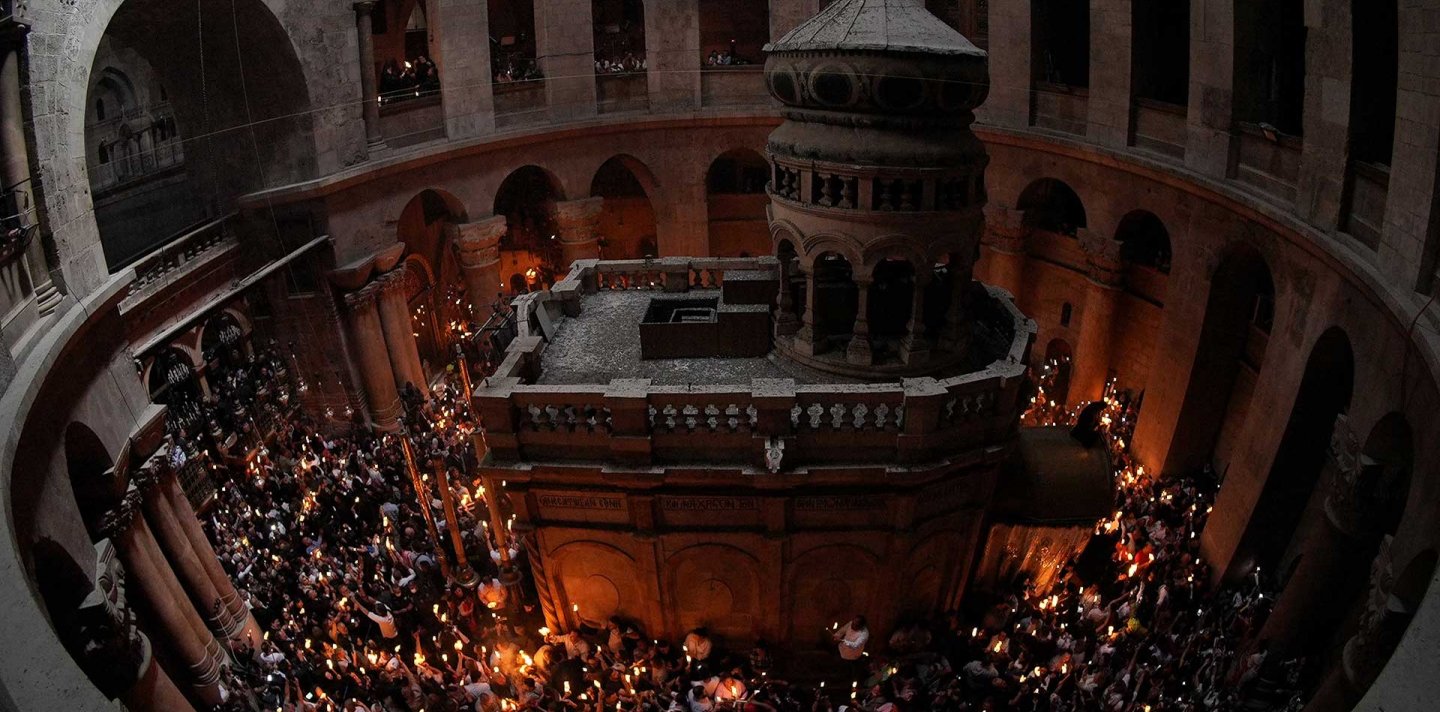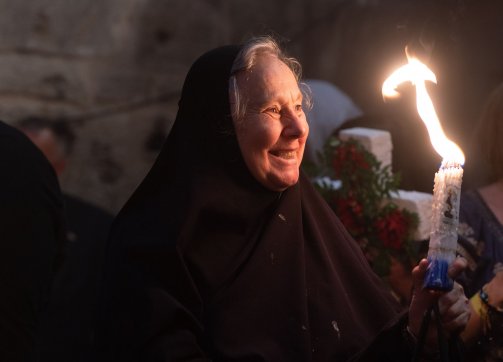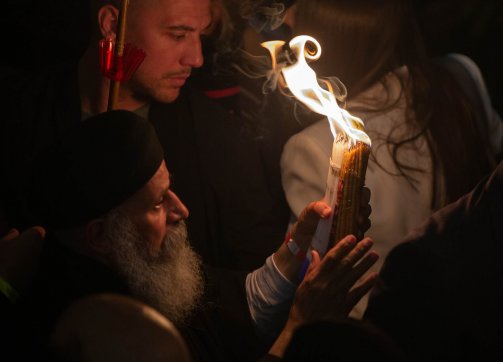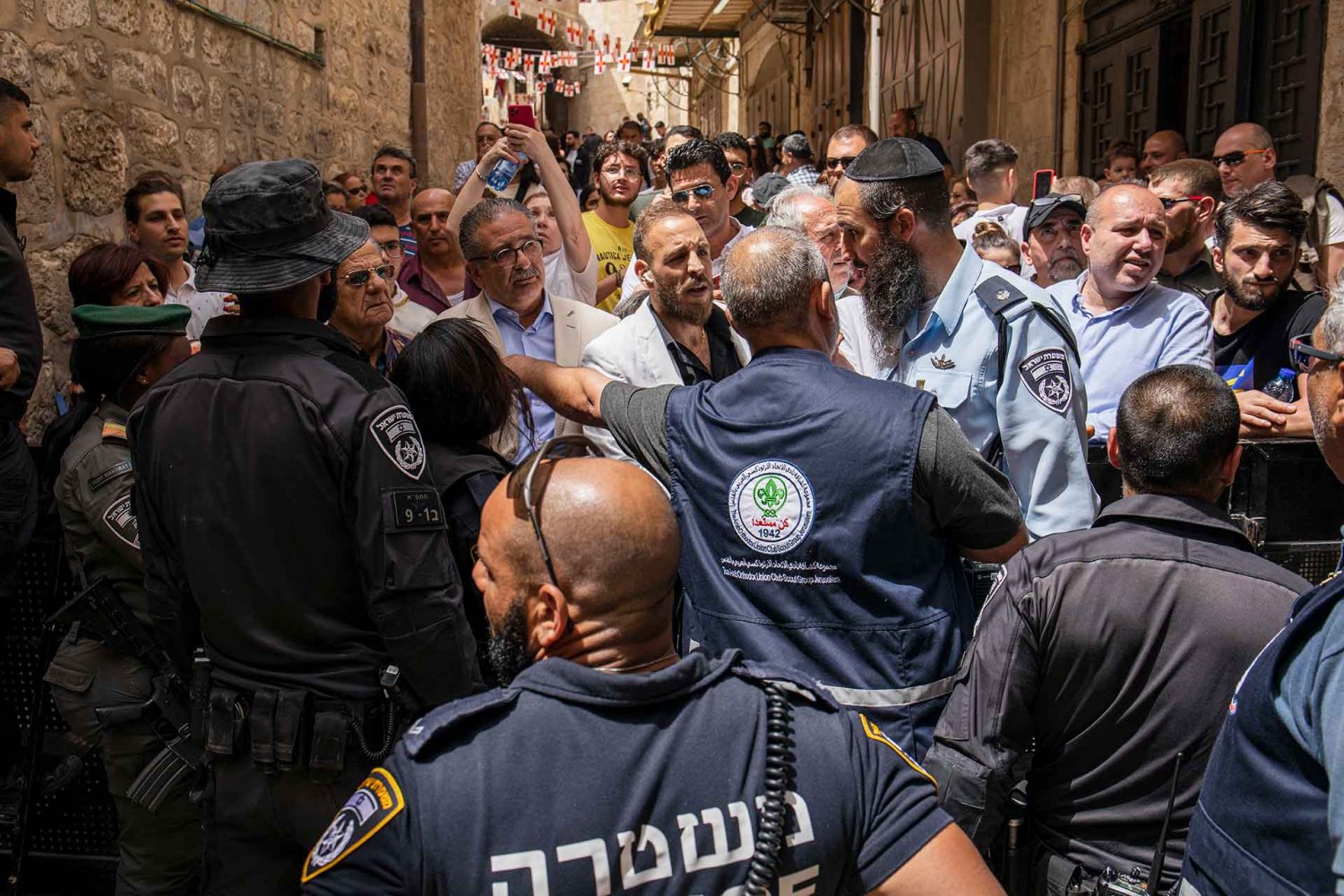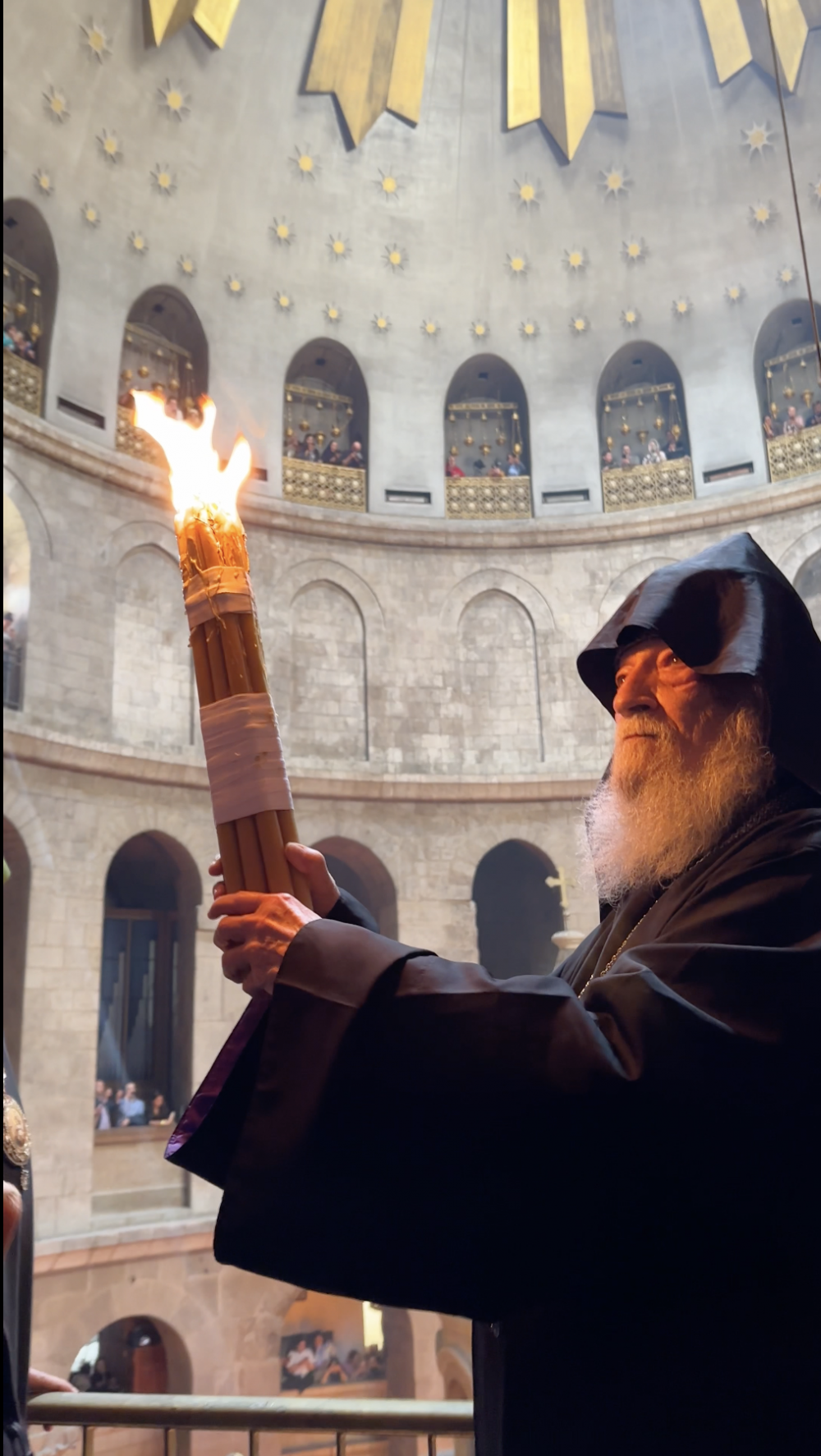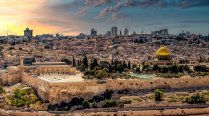Negotiations over the restrictions between the police and church leaderships broke down a few days before the ceremony, because church leaders refused to accept the Israeli authorities’ restrictions on attendance, which they termed “heavy-handed.”3
This year, like in 2022, police capped inside attendance at 1,800 people (1,000 Orthodox Christians, 600 Armenian Orthodox Christian, and 200 police), according to a press conference given by church authorities on April 12, 2023,4 and total attendance (including outside in the courtyard) was also capped at 4,000, like last year.5 The police claimed the restrictions were needed for safety, since the church has only one opened doorway, somewhat impeded by a raised step.
But authorities did not just restrict entry to the church itself; they also blocked entry to the entire Christian Quarter, including, for the first time, installing wire “cage” barricades at the New Gate entrance to the Old City. This prompted outrage from the community. More than 2,000 police officers guarded the Old City’s tight alleys6 and, as early as 8:00 a.m., police were turning worshippers away.
Those left disappointed included many pilgrims from around the world who had arrived in hopes of participating in the ceremony.

